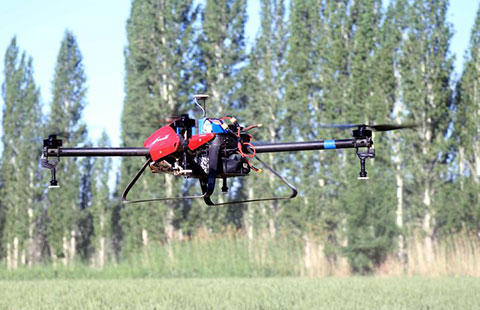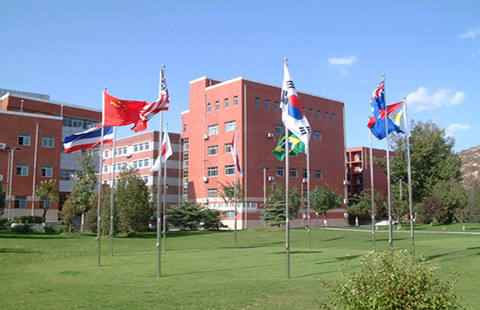Organic food spreads its roots in growing Chinese market
By Cai Muyuan (chinadaily.com.cn) Updated: 2015-06-05 15:29Domestic companies are taking the initiatives to tap into the country's thirst for healthy dieting. Hona Organic, a company sells organic condiments, believes that enjoying the original taste of food is what eating healthy is all about. Setting out a kitchen on the fair, Hona attracts visitors to its booth by showing how healthy meals are cooked using very little condiments.
"Eating organic is not just a life style, it's also a choice to protect the environment and to respect the nature," Kang Yanli, the marketing manager of Hona Organic said, believing that it's a meaningful career she's in. "By not using chemical fertilizer, we are protecting not only ourselves but also farmers and animals in ecosystem," adding that it's important for domestic organic companies to pass on this knowledge to customers.
A series of high-profile food scandals over the past seven years has been a primary catalyst for growth in the organic food market. Ni Hongxing, director of China Agricuture Trade Promotion Center of MOA, said that China still faces a food safety crisis, adding that 96.22 percent of domestic consumers worry about this issue according to a poll.
"Building trust by securing the quality of the food is the key", Ni said.
The Communist Party of China Central Committee's No 1 Central Document for 2015, which outlines policy priorities for the year, emphasizes food security, sustainable agriculture and the environment. It also points out the balanced emphasis on quality and quantity is an important part of rural l agriculture reform.
Pursuing high output at the cost of resource depletion is now an recognized problematic path that's need to be ended.
The market share of organic food in China's food sector accounts 0.3 percent while that's of 8 percent in Denmark. "Countries that have developed organic agriculture early are under very little pressure of food quantity because they have more farmland and small population," Wang Huafei, director of China Organic Food Certification Center, said. "China has a big population and the demand of food pushed the overuse of fertilizers in farmland that's developed in high density. Our farmland works overload and pests and diseases have a higher possibility to frequent the crops."
"On top of that, China still has a long way to go in researching and inventing the effective biological pesticide with lower costs. It takes long time to teach farmers the new technologies with biological pesticide too," Wang said, pointing out that we have to develop organic agriculture sustainably, one step at a time without forcing it.
An industry report says that organic food sector is expected to grow to 1 to 1.5 percent in China from 2014 to 2018.
- Food labeling is sensible, but within limits
- China currency swap deals surpass 3t yuan
- Knowles expects sound future in China
- The long and winding road to success
- UnionPay seeks bigger global role
- China emissions could peak 5 years earlier than expected
- Lenders tap online sources of growth
- Murdoch's sons to become CEO, co-chair at 21st Century Fox

















